The Government is set to appoint a Senior Counsel to investigate the defective blocks scandal in the coming months, Minister Paschal Donohoe has revealed.
The Minister for Public Expenditure and Reform described the government’s grant scheme as “the single biggest capital project” Ireland faces in years to come, with costs to reach over € 2 billion.
Minister Donohoe said that commitment of decency and a duty of care was owed to those affected by the defective blocks scandal in County Donegal, and elsewhere.
Some of Donegal’s key issues were raised with the Minister at a recent event hosted by the Donegal Dublin Business Network (DDBN). Minister Donohoe was the guest speaker at a gathering at the offices of international accounting and advisory organization Grant Thornton, where pressing matters ranged from infrastructure to connectivity to the defective concrete blocks crisis.
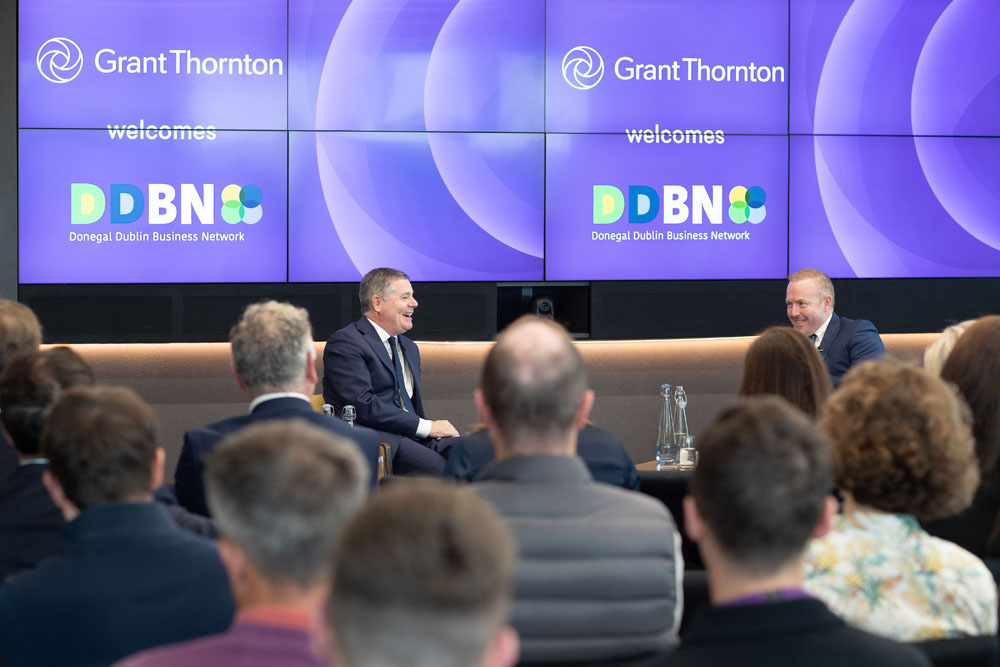
Seán Perry interviewing Minister Paschal Donohoe

Garrett Harte, Sally Anne Sherry, Paul Doyle, Minister Paschal Donohoe and Declan Walsh.
In a question-and-answer format hosted by award-winning broadcaster and Ballyshannon native Seán Perry, Minister Donohoe said the Government expects to appoint a Senior Counsel in the next stage of the redress scheme “in the next few months” but explained a focus had been placed on getting the legislation through first. Seán Perry emphasised that foundations are the latest issue of debate.
Pointing out that a failure of regulation in the construction industry pre-dated his political career, Minister Donohoe said he had been actively working to provide a solution since 2018, had met with residents and had viewed the impact of building shortcomings first-hand.
“This is the single biggest capital project we face over the next few years – equivalent in scale to the National Broadband Scheme. The costs will be above €2billion. Any further changes to the scheme will be minimal – Minister Darragh O’Brien has said that. It’s a multi-billion-euro commitment that the taxpayer is making available. We must balance fixing wrongs of the past with issues of today and the needs of the future”.
On transport, Minister Donohoe said that ensuring proposed upgrades to the A5 route through Northern Ireland progressed as quickly as possible continued to rank among the government’s key priorities.
He advised DDBN members that the extension to the A5 was making progress.
“The government has for many years been committed to make this happen and that remains the case,” Minister Donohoe said.
In recent months, recommendations have also been made in terms of radically improving Irish rail infrastructure and reconnecting County Donegal to a much-optimised national network. However, the former Minister for Transport warned DDBN members that rail infrastructure was phenomenally expensive to build and maintain. He added that Minister Eamon Ryan was actively considering the proposed integrated rail transport proposals.
Asked by Seán Perry about his relationship with An Taoiseach, Leo Varadkar, Minister Donohoe expressed deep loyalty. “He is the finest of us,” he added, describing his colleague’s intellect and grasp of issues as extraordinary. When queried on mistakes that had the Taoiseach had made, he responded “we are all human” and pointed to the Taoiseach’s performance in the pandemic.
“One of our greatest strengths is our ability to move on. Now, it is difficult to recollect precisely how vulnerable we were in the pandemic. History will show the scale of the challenge. Leo Varadkar’s leadership during that period was utterly exceptional.”
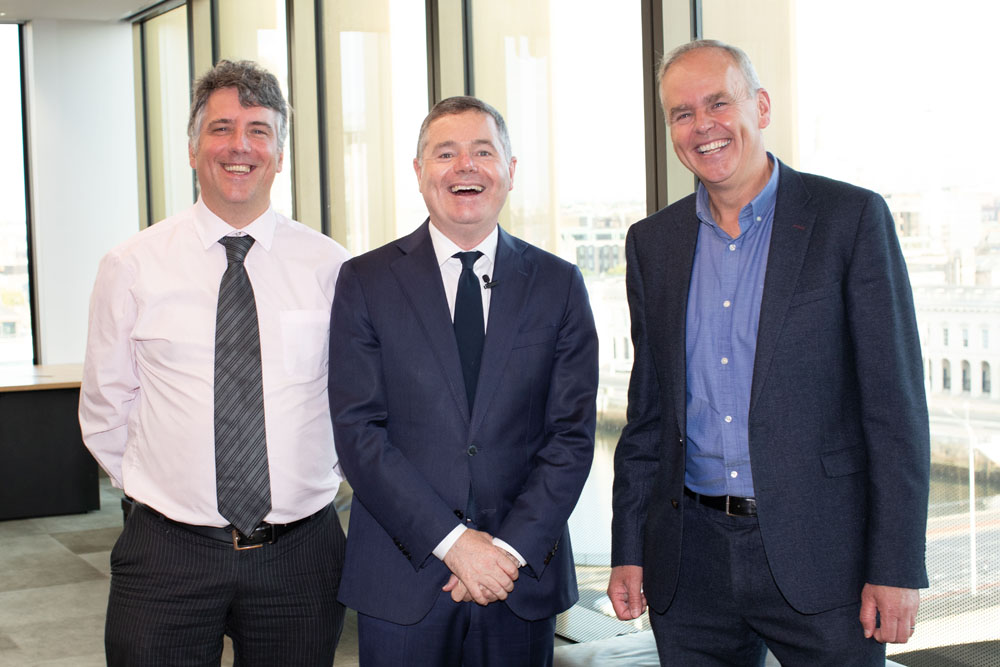
Councillor Danny Byrne, Minister Paschal Donohoe and Joe McHugh TD
The DDBN event guest speaker said all politicians were imperfect but added he had he had worked up close for three Taoisigh – the current incumbent, Micheál Martin and Enda Kenny – and it was difficult to convey just how intense a life was involved. When queried about his own aspirations for Irish politics’ top post, he responded: “It is not an aspiration that I have.”
Seán Perry asked his guest about kindness in the context of the vitriol and naked hatred that politicians were sometimes subjected to. Minister Donohoe said that there was an absolute place for protest and for the voicing of strong opinions. But alongside that, he stressed that citizens also needed to be conscious of the risks posed by polarisation and a fragmentation for any society.
“This is such a decent and good country. The natural instinct of most people in Ireland is to reach out your hand, to smile, to look out for your neighbour. Kindness, compassion, and empathy are in decline elsewhere. Part of that is being reflected in political life. If there is a decline in the quality of people in public life, it will have consequences,” he concluded.
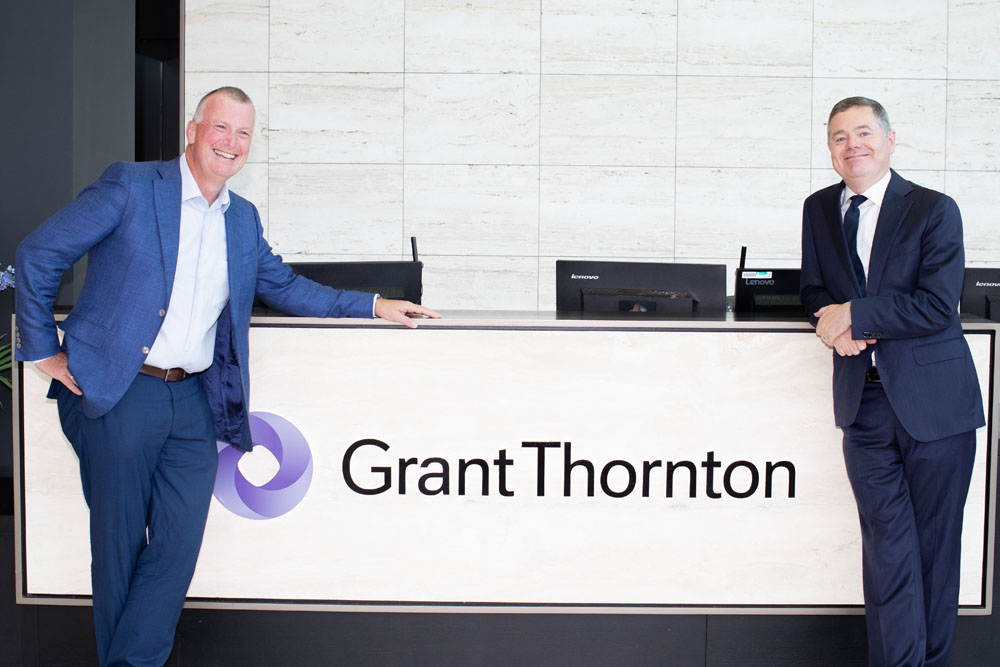
Michael McAteer (Managing Partner of Grant Thornton) and Minister Paschal Donohoe.
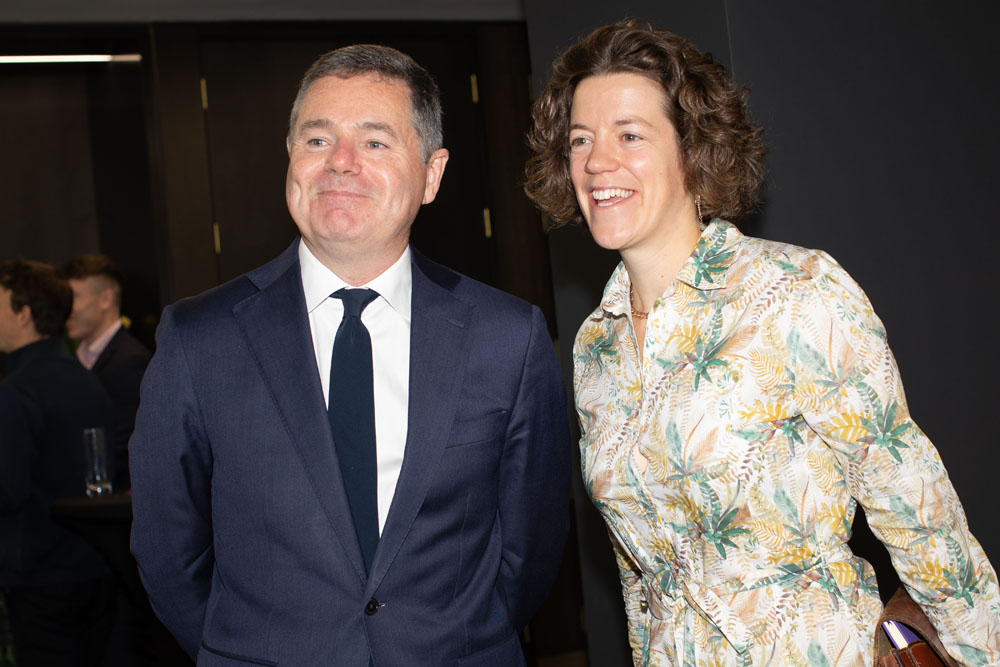
Minister Paschal Donohoe and Rosy Temple (Magee 1866)
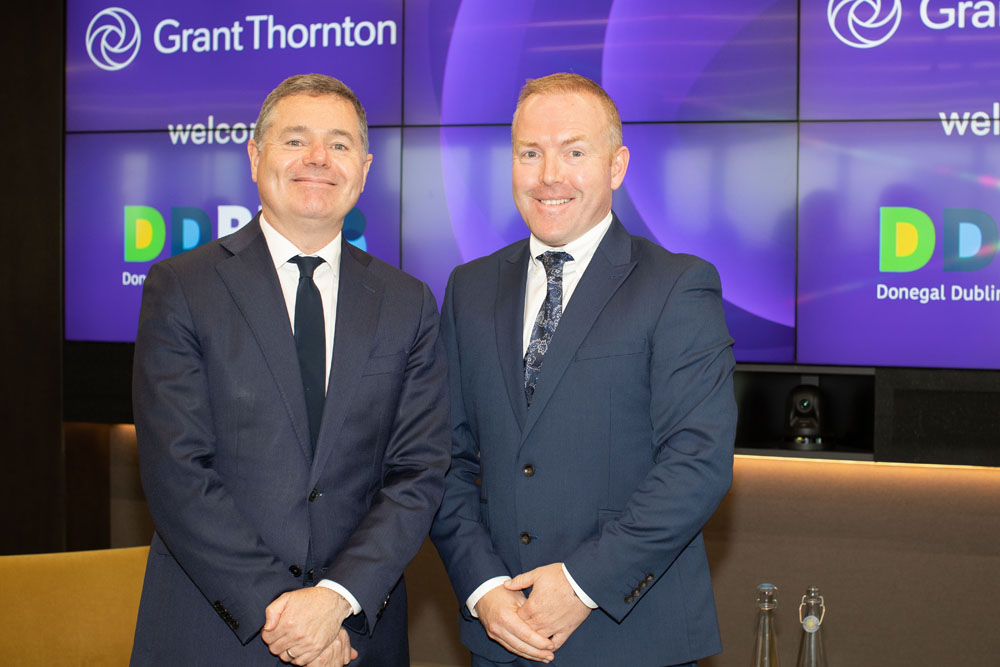
Minister Paschal Donohoe and Seán Perry
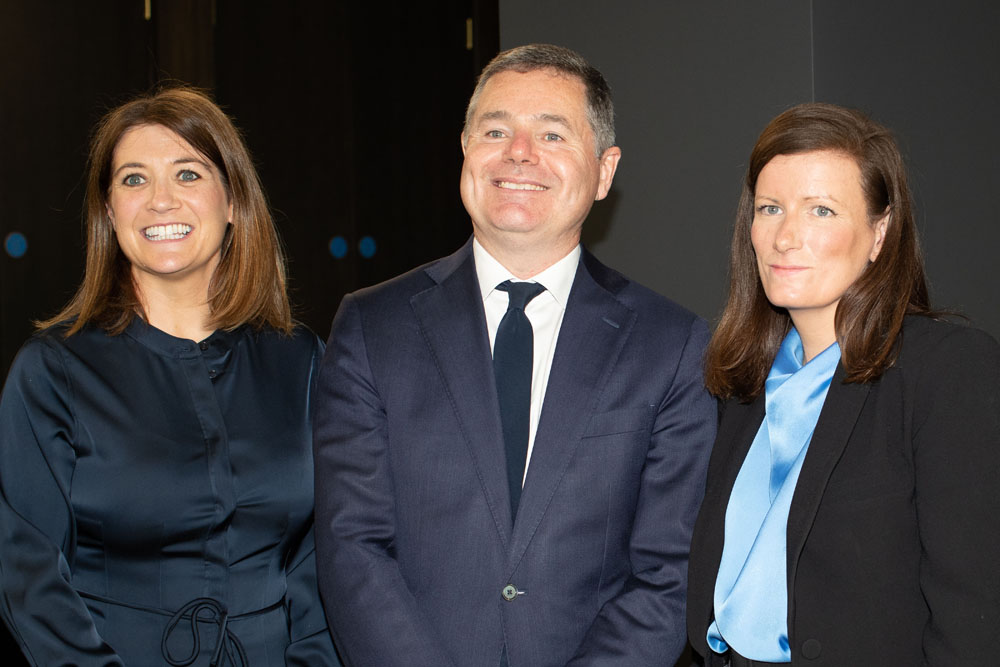
Sally Anne Sherry, Minister Paschal Donohoe and Majella Ellis
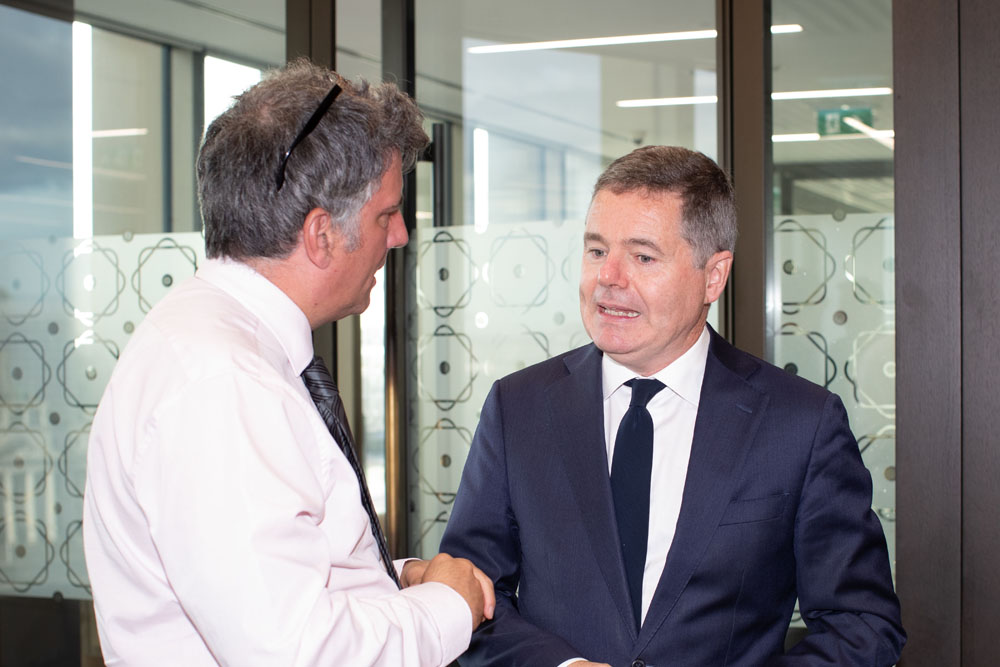
Councillor Danny Byrne and Minister Paschal Donohoe. Danny Byrne is originally from Bruckless and is a Councillor in Dublin City Council.








